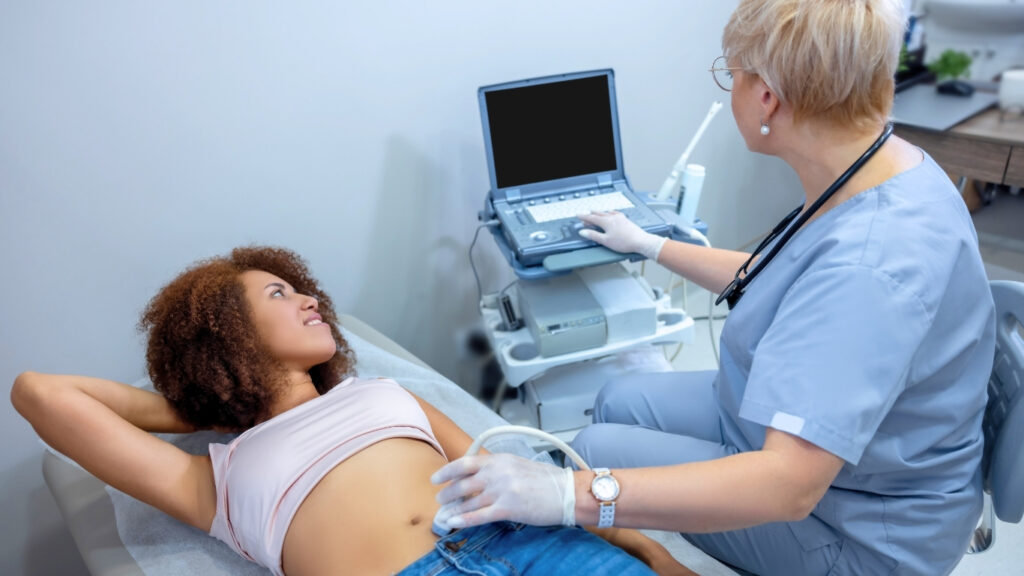Why Timely Gynecological Care Matters
When it comes to women’s health, listening to your body is key, but knowing when to see a gynecologist is just as important. Whether it’s a subtle change in your cycle or something more alarming, early intervention can make all the difference.
Gynecologists are trained to spot patterns, diagnose underlying issues, and offer treatment options that support both your reproductive and overall well-being. Yet many women delay care, hoping symptoms will resolve on their own.
Need A Gynecologist? Book Appointment!
This guide explores five urgent gynecological signs you should never ignore, along with a few lesser-known symptoms that also warrant attention. If something feels off, trust your instincts. It’s better to be proactive than wait until a problem becomes more serious.
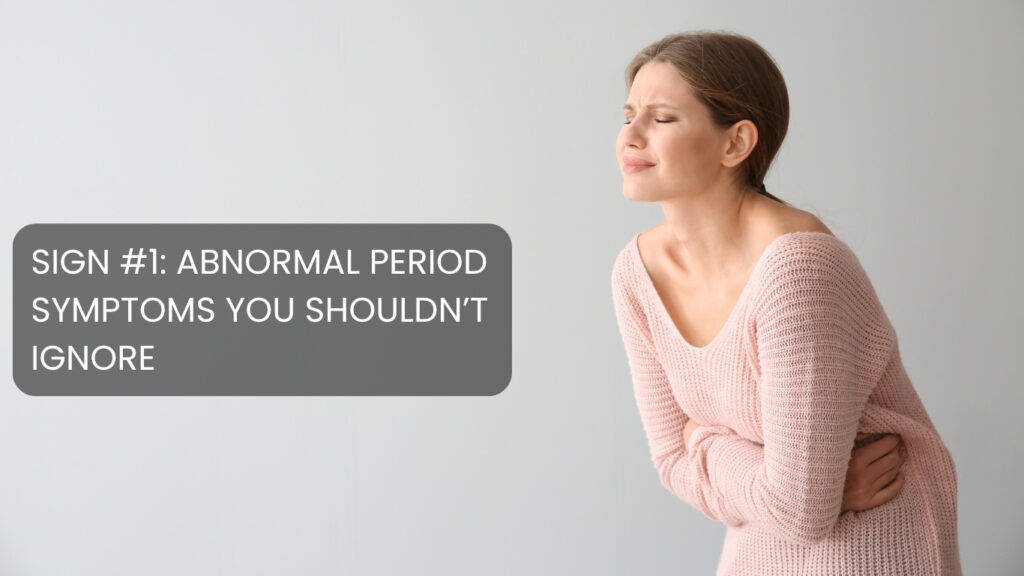
Sign #1: Abnormal Period Symptoms You Shouldn’t Ignore
Your menstrual cycle is a powerful indicator of your overall health. While every woman’s cycle is unique, certain changes can signal deeper concerns. Abnormal period symptoms are among the most common early signs that you need a gynecologist, especially when they persist or worsen over time.
Heavy, Prolonged, or Missed Periods
- Heavy bleeding (soaking through pads/tampons in under two hours)
- Periods lasting longer than 7 days
- Missed periods without pregnancy or menopause
- Extremely painful cramping disrupts daily life
These symptoms may point to conditions like fibroids, polycystic ovary syndrome (PCOS), or hormonal imbalances.
What’s Normal vs. When to Seek Help
Some variation is normal, but if your period suddenly changes in flow, timing, or severity, it’s time to get checked. A gynecologist can run hormone panels, imaging, and other tests to pinpoint the cause and recommend treatment.
Early care can ease symptoms, prevent complications, and restore your quality of life.
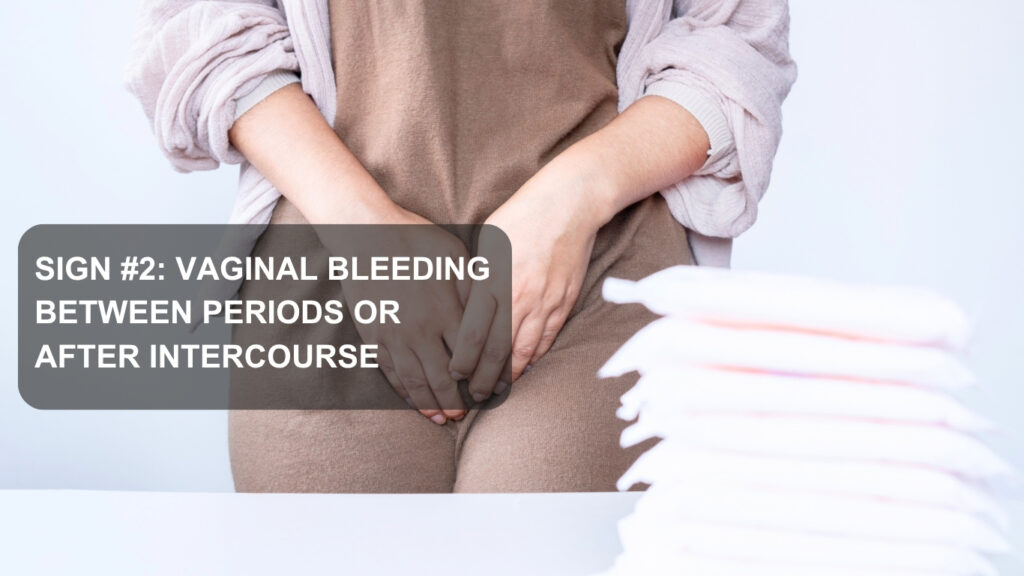
Sign #2: Vaginal Bleeding Between Periods or After Intercourse
Spotting outside of your normal cycle isn’t always harmless. Whether it’s light pink or heavier bleeding, any vaginal bleeding between periods or after sex should be discussed with a gynecologist especially if it happens more than once.
Causes and Risks
Irregular bleeding can stem from:
- Hormonal fluctuations
- Uterine fibroids or polyps
- Cervical or uterine infections
- Early signs of precancerous changes or cancer
While not all cases are serious, some can be early warnings of more complex conditions that require timely treatment.
When to See a Gynecologist for Spotting
bleeding, these are urgent gynecological signs that shouldn’t be ignored. Your doctor may recommend a pelvic exam, Pap smear, or ultrasound to rule out more serious causes.
Prompt care can offer clarity, peace of mind, and early intervention when needed.

Sign #3: Persistent Pelvic or Lower Abdominal Pain
Pelvic pain can be tricky—it may come and go, or feel like dull pressure, sharp cramps, or even back pain. But when the discomfort becomes frequent or starts to interfere with your daily life, it’s one of the clearest gynecological symptoms that something isn’t right.
Possible Underlying Conditions
Persistent pelvic or lower abdominal pain could signal:
- Endometriosis
- Ovarian cysts or torsion
- Pelvic inflammatory disease (PID)
- Uterine fibroids
- Ectopic pregnancy (if accompanied by missed period and sharp pain)
Some of these conditions can be serious and even life-threatening if left untreated.
When Pain Becomes a Red Flag
If your pain:
- Lasts more than a few days
- Worsens with your period or intercourse
- Is accompanied by fever, nausea, or unusual discharge
It’s time to call a gynecologist.
Getting a clear diagnosis can help you manage or even resolve the issue, improving your comfort, fertility, and long-term health.
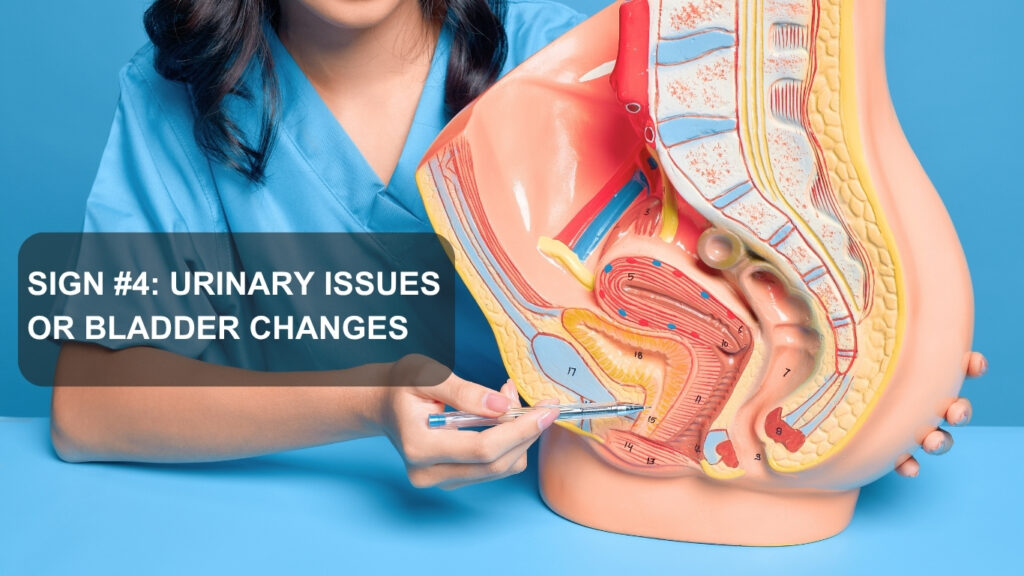
Sign #4: Urinary Issues or Bladder Changes
Changes in your urinary habits may not seem like a gynecological issue at first—but the urinary and reproductive systems are closely connected. Symptoms like urgency, frequency, pain during urination, or leakage can point to underlying conditions that a gynecologist is equipped to evaluate.
Urgency, Frequency, Pain, or Leakage
These signs may indicate:
- Urinary tract infection (UTI)
- Bladder infection
- Interstitial cystitis
- Pelvic floor dysfunction
- Hormonal changes affecting the urethra and bladder
Left untreated, these issues can worsen and begin to impact your quality of life, especially during physical activity, intimacy, or daily routines.
Link Between Gynecological Health and Urinary Problems
Bladder symptoms are often linked to changes in estrogen levels, pelvic support issues, or even reproductive system inflammation. If urinary symptoms persist beyond a few days—or keep recurring—a gynecologist can help determine whether the cause is urological, hormonal, or gynecological.
It’s always worth checking in, especially if symptoms are new or worsening with age or menopause.
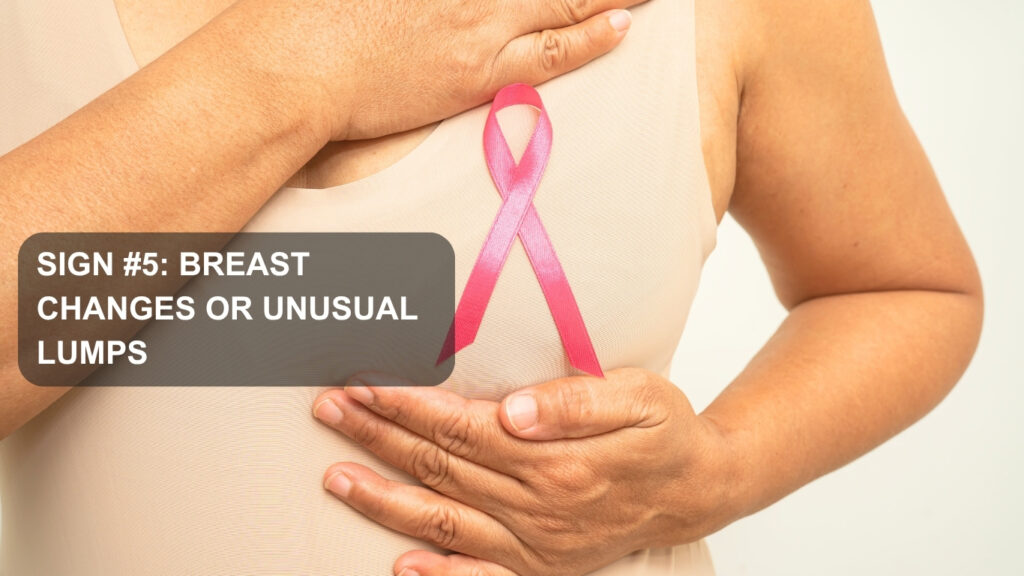
Sign #5: Breast Changes or Unusual Lumps
Many women are surprised to learn that breast health is an essential part of routine gynecological care. If you notice new or persistent changes in your breasts, it’s one of the most important signs you need a gynecologist to rule out serious concerns.
What’s Considered Normal
Some lumpiness, tenderness, or swelling may occur naturally due to hormonal changes throughout your cycle. However, any of the following should prompt a professional evaluation:
- A firm or immovable lump
- Dimpling or puckering of the skin
- Nipple discharge (especially bloody or clear)
- Redness, warmth, or swelling
When to Consult a Gynecologist Immediately
Not all lumps are cancerous, but early detection is key. Your gynecologist can perform a breast exam, order a mammogram or ultrasound, and refer you to a specialist if needed.
If you’re unsure whether a change is normal, it’s best not to guess. Prompt attention from a provider like Coleen Vache Healthcare can bring peace of mind or ensure timely care.
Bonus Sign: Menopausal or Hormonal Changes
Menopause is a natural phase of life, but that doesn’t mean it’s easy. From mood swings to hot flashes and vaginal dryness, the transition often comes with symptoms that deserve professional support. Yet many women hesitate to speak up, assuming it’s something they just have to endure
Hot Flashes, Mood Swings, and Vaginal Dryness
Common menopausal symptoms that may benefit from a gynecologist’s care include:
- Night sweats and disrupted sleep
- Irritability or depression
- Vaginal discomfort or pain during intercourse
- Loss of libido
- Irregular or suddenly heavy periods in perimenopause
These are not just “getting older” symptoms—they’re treatable signs of shifting hormones.
Why Gynecological Support Still Matters After 40+
Even after fertility is no longer a concern, gynecological care is crucial. A provider can offer guidance on hormone replacement therapy, non-hormonal treatments, and lifestyle changes that improve long-term health and comfort.
If you’re noticing changes in how your body feels or functions post-40, it’s time to check in. Staying in touch with your gynecologist during menopause is one of the most proactive ways to protect your well-being for years to come.
If you’re experiencing any of the signs we’ve mentioned—whether it’s unusual bleeding, pelvic pain, or changes in your menstrual cycle don’t wait to seek help. At East Coast OBGYN, your health and comfort come first. Our experienced and compassionate team is here to listen, evaluate, and guide you through the care you need. Don’t put off your well-being—contact us today or book an appointment to get the expert care you deserve.
FAQs
1. What menstrual symptoms should prompt a visit to a gynecologist?
You should see a gynecologist if you experience abnormal period symptoms like heavy bleeding, severe cramping, missed periods, or cycles that suddenly become irregular. These may indicate hormonal imbalances, fibroids, or other treatable conditions.
2. Is spotting between periods or post-sex normal?
Occasional spotting may happen, but frequent vaginal bleeding between periods or after intercourse should never be ignored. It could signal infections, cervical changes, or other underlying health concerns. A gynecologist can help determine the cause.
3. When is pelvic pain a concern?
Pelvic or lower abdominal pain that lasts more than a few days, worsens with your period, or affects your daily life should be evaluated. Persistent pain can be a sign of conditions like endometriosis, cysts, or pelvic inflammatory disease.
4. When should urinary or bladder issues lead to a gynecologist?
If you’re experiencing frequent urination, pain, urgency, or accidental leakage, these may be urgent gynecological signs—especially if symptoms persist or recur. Gynecological health can directly impact bladder function.
5. Should I see a gynecologist for breast pain or a lump?
Yes. A gynecologist is trained to assess breast changes, including lumps, nipple discharge, or skin changes. Even if symptoms seem minor, early evaluation is important for your safety and peace of mind.
6. Are menopausal symptoms something to discuss?
Absolutely. Menopause and perimenopause can bring disruptive symptoms like hot flashes, vaginal dryness, mood swings, and sleep issues. A gynecologist can recommend safe, effective treatments tailored to your stage of life.

